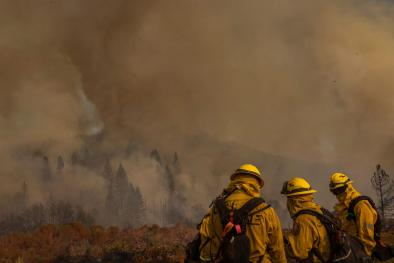Climate change made UK heatwave at least 10 times more likely
Study key findings & significance
- Human-caused climate change made the UK heatwave in July at least 10 times more likely.
- Extreme temperatures in Western Europe have risen more than climate models simulate.
Author quotes
“In Europe and other parts of the world we are seeing more and more record-breaking heatwaves causing extreme temperatures that have become hotter faster than in most climate models. It’s a worrying finding that suggests that if carbon emissions are not rapidly cut, the consequences of climate change on extreme heat in Europe, which already is extremely deadly, could be even worse than we previously thought.”
- Friederike Otto, Senior Lecturer in Climate Science at the Grantham Institute for Climate Change, Imperial College London
Abstract
On Monday and Tuesday, 18 & 19 July 2022, an exceptional heatwave affected large parts of the UK. It was the first time that temperatures of 40°C and above have been forecast in the UK.
On Tuesday, 40.3°C was reached in Coningsby in Lincolnshire, breaking the previous maximum temperature record of 38.7°C set in 2019. Local records have been broken in 46 stations across the country. Minimum temperatures were also extremely high with 25.8°C provisionally being recorded in Kenley in Surrey, breaking the previous record from 1990 by 1.9°C.
The heatwave was very well forecast, and the UK Met Office issued severe weather warnings well ahead of the heat. A Level 4 UK Health Security Agency Heat Health Alert had been issued for Monday and Tuesday. This level of alert is used when a heatwave is so severe and/or prolonged that its effects extend outside the health and social care system. At this level, illness may occur among the fit and healthy, not just in high-risk groups.
Scientists from South Africa, Germany, France, Switzerland, New Zealand, Denmark, United States of America and the United Kingdom, collaborated to assess to what extent human-induced climate change altered the likelihood and intensity of the heatwave.
Using published peer-reviewed methods, we analysed how human-induced climate change altered the likelihood and intensity of this heat wave in the region of the red alert warning (see Figure 1). To capture the duration of the event as well as the record temperatures we look at maximum temperatures as well as the highest 2-day averages observed.
Related Content



